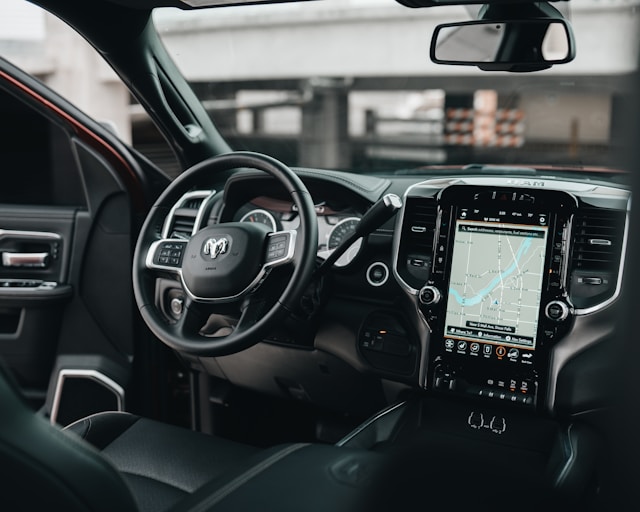If you’ve ever rented a car, you’ve likely faced the question: “Do I really need the extra insurance they offer at the counter?” It’s a common dilemma, and while some people instinctively decline rental car insurance, others feel unsure about whether they should accept it. The truth is, the answer isn’t always straightforward. It depends on a few factors, including your existing insurance coverage, how and where you’re driving, and your comfort level with risk.
Understanding the Different Types of Rental Car Insurance
When you rent a car, you’ll typically be offered several types of insurance coverage. These options can vary by company, but here are the most common ones:
Collision Damage Waiver (CDW) / Loss Damage Waiver (LDW)
A Collision Damage Waiver (CDW), sometimes called a Loss Damage Waiver (LDW), is designed to cover damages to the rental vehicle if it’s involved in an accident, stolen, or vandalized. It can give you peace of mind knowing you won’t be responsible for the full cost of repairs or replacement of the car. However, it’s important to note that CDW/LDW often doesn’t cover everything. For instance, it might exclude damages to tires, windshields, or personal items inside the car. You should always read the fine print to understand exactly what’s included.

Liability Insurance
Rental car liability insurance covers you if you’re at fault in an accident that damages someone else’s property or causes injury to another person. In some cases, this coverage may be legally required, depending on where you’re renting. Without it, you could face hefty out-of-pocket costs if you cause damage or injuries in an accident.
Personal Accident Insurance (PAI)
Personal Accident Insurance (PAI) provides medical coverage for you and your passengers in case you’re involved in a car accident. It typically covers medical expenses, ambulance services, and sometimes even accidental death benefits. If you already have health insurance that includes coverage for car accidents, this extra layer of protection may not be necessary.
Personal Effects Coverage (PEC)
Personal Effects Coverage (PEC) is designed to protect your personal belongings if they’re stolen or damaged while inside the rental car. This can include things like your luggage, electronics, or other valuables. However, many people already have this type of coverage through their homeowners or renters insurance policies.
What Your Existing Insurance May Cover
Before deciding whether to buy rental car insurance, it’s important to understand what coverage you already have. In many cases, your personal insurance policies or credit cards may provide protection when you’re renting a vehicle.
Auto Insurance Policy
If you own a car and have personal auto insurance, your policy may extend to rental vehicles. Most auto insurance policies will cover rental cars for the same types of coverage you have for your own vehicle. For example, if you have comprehensive and collision coverage on your car, those protections will typically apply to a rental car as well. Liability coverage usually follows you to a rental as well. Be sure to check the details with your insurance provider to confirm exactly what’s covered and what’s not.
Credit Card Coverage
Some credit cards offer rental car insurance as a benefit, particularly if you use the card to pay for the rental. This coverage is usually for collision damage only, meaning it will pay for repairs to the rental car if it’s damaged in an accident. However, it often won’t cover liability (damage to others), personal belongings, or medical expenses. Furthermore, credit card coverage may have exclusions, such as not covering luxury or specialty vehicles, rentals for more than a certain number of days, or rentals in certain countries. Make sure you check the terms of your credit card’s policy before relying on it.
Health Insurance
Your health insurance may cover medical costs related to injuries in a car accident, which makes Personal Accident Insurance (PAI) less necessary. However, keep in mind that health insurance may not cover all medical expenses or offer as much protection as a dedicated accident policy, especially if you’re traveling internationally.

When Should You Consider Buying Rental Car Insurance?
There are some situations where it makes sense to buy the rental car insurance, even if you have other coverage. Here are a few examples:
Traveling Abroad
If you’re traveling internationally, it’s important to know that many U.S.-based auto insurance policies and credit card protections do not extend to rentals outside of the country. In some countries, it’s mandatory to purchase local insurance. You should always check the requirements for your destination before assuming you’re covered.
No Existing Coverage
If you don’t own a car and don’t have personal auto insurance, you may not have any protection in place for rental vehicles. In this case, buying rental car insurance can offer necessary coverage for both liability and damage to the rental car. It can also make the process less complicated if you do get into an accident.
High-Risk Driving Conditions
If you’re planning to drive in unfamiliar or high-risk environments—such as mountainous terrain, heavy traffic, or areas with unpredictable weather conditions—rental car insurance might be a wise investment. It can offer additional peace of mind knowing you’re covered if something goes wrong.
Peace of Mind
Even if you have coverage through your auto insurance or credit card, you may still want to buy the rental company’s insurance for extra protection. Having rental car insurance can simplify the claims process and reduce the potential for out-of-pocket costs like deductibles or minor damages (such as scratches or dents) that your existing coverage might not fully cover.
When You May Not Need Rental Car Insurance
On the flip side, there are situations where you might not need to buy additional rental car insurance.
Already Fully Covered
If your personal auto insurance and credit card provide comprehensive coverage for rental cars, you might be fully protected without needing to buy extra insurance. Be sure to verify your coverage before declining the rental car company’s offer.
Renting for a Short, Low-Risk Trip
If you’re renting a car for a short trip in an area where you’re familiar with the roads and driving conditions, you may not need additional insurance. Your existing coverage may be enough to give you peace of mind.
Travel Insurance
Some travel insurance policies include rental car protection as part of their coverage, particularly for international trips. If you’re already covered through travel insurance, there may be no need to purchase extra insurance from the rental company.
How to Check Your Existing Coverage
Before you decide whether to buy rental car insurance, take a few steps to verify what protection you already have.
Contact Your Insurance Provider
Call your auto insurance provider to ask whether your policy covers rental cars. Make sure to inquire about any deductibles and confirm whether your coverage extends to international rentals if you’re traveling abroad.
Check Your Credit Card Benefits
Review your credit card’s benefits guide or contact customer service to ask about their rental car coverage. Be sure to verify whether they cover collision, liability, or personal effects, and check for any exclusions.
Conclusion
Ultimately, whether you should buy rental car insurance depends on your existing coverage and travel plans. While it can be tempting to decline the additional cost, having the right insurance could save you from significant financial burden in case of an accident. By doing a little research beforehand and understanding your options, you can make an informed decision and feel confident on the road.
So, next time you’re renting a car, will you opt for the extra insurance, or rely on your existing coverage? The choice is yours—but now you have the knowledge to make the right one.


